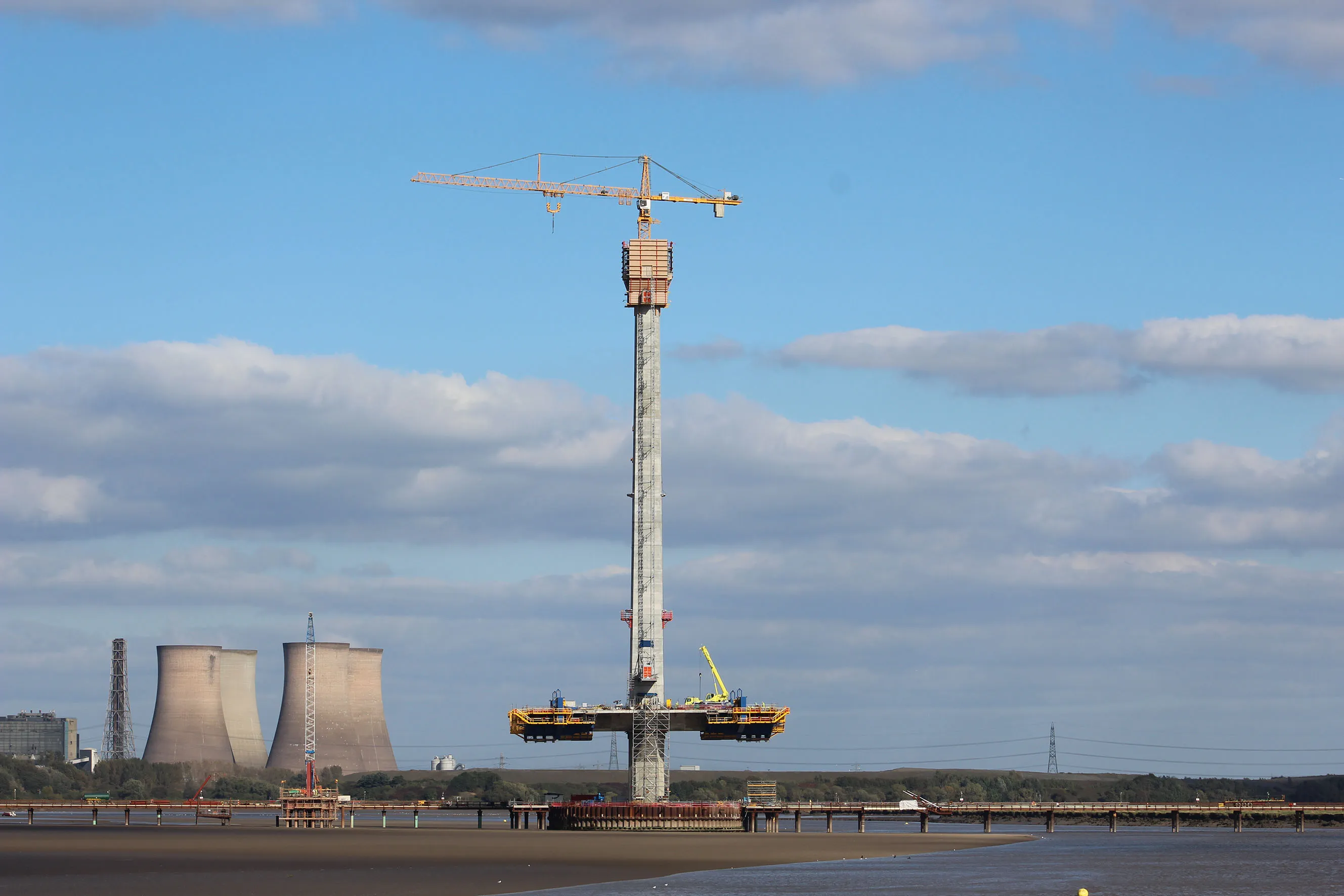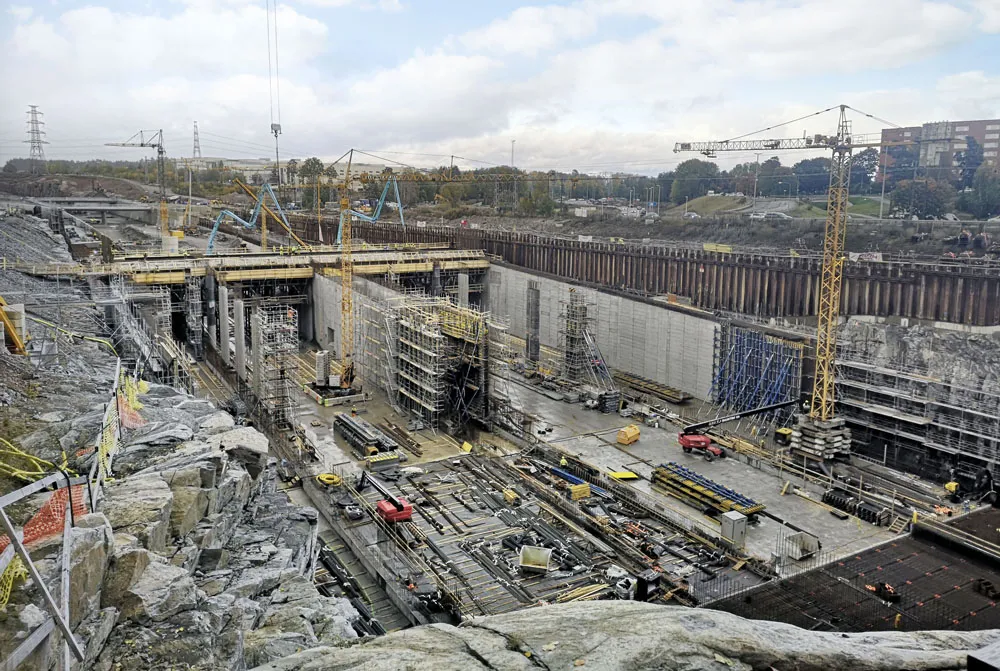Work is well in hand on the Mersey Gateway Bridge project in the UK. The bridge construction work has now reached a major milestone. The south pylon of the Mersey Gateway has been completed, marking the project’s highest point in the River Mersey estuary. The south pylon stands 125m high, with the north pylon due to be completed in the next few days. The smaller central pylon, which is due to be finished in November, will be 80m high.
A specialist automatic climbing system is being used to construct the
October 6, 2016
Read time: 2 mins

Work is well in hand on the 6126 Mersey Gateway Bridge project in the UK. The bridge construction work has now reached a major milestone. The south pylon of the Mersey Gateway has been completed, marking the project’s highest point in the River Mersey estuary. The south pylon stands 125m high, with the north pylon due to be completed in the next few days. The smaller central pylon, which is due to be finished in November, will be 80m high.
A specialist automatic climbing system is being used to construct the bridge pylons. This equipment builds one vertical 5m section at a time. It then repeatedly climbs upwards to create the next section until the structure is complete. Construction teams have completed 30 sections for the south pylon and 27 for the north pylon. In all, 21 sections will be built for the central pylon. A total of 2,230m3 of concrete was poured for the south pylon, and 1,890m3 for the north pylon.
Gareth Stuart, project director at Merseylink, said, “Hitting the highest point on the project is a significant milestone and it’s a testament to the tenacity and expertise of our construction crews who have worked extremely hard, often in challenging conditions, to get the job done. We’ll be holding a special site celebration to thank all of the teams involved.”
The next phase of work involves installing steel stay cables to connect the three bridge pylons to the main bridge deck. This will begin in the next couple of weeks. Halton’s six-lane river crossing is on schedule to open in autumn 2017.
A specialist automatic climbing system is being used to construct the bridge pylons. This equipment builds one vertical 5m section at a time. It then repeatedly climbs upwards to create the next section until the structure is complete. Construction teams have completed 30 sections for the south pylon and 27 for the north pylon. In all, 21 sections will be built for the central pylon. A total of 2,230m3 of concrete was poured for the south pylon, and 1,890m3 for the north pylon.
Gareth Stuart, project director at Merseylink, said, “Hitting the highest point on the project is a significant milestone and it’s a testament to the tenacity and expertise of our construction crews who have worked extremely hard, often in challenging conditions, to get the job done. We’ll be holding a special site celebration to thank all of the teams involved.”
The next phase of work involves installing steel stay cables to connect the three bridge pylons to the main bridge deck. This will begin in the next couple of weeks. Halton’s six-lane river crossing is on schedule to open in autumn 2017.







